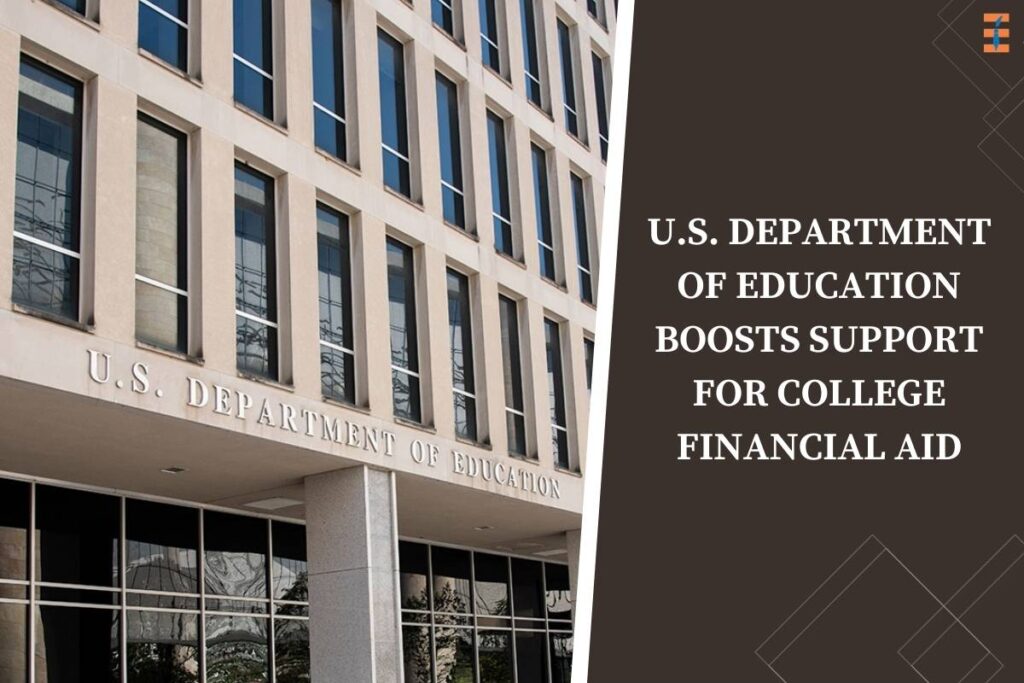Source – Credit_ Education Images_Universal Images Group via Getty Images
The U.S. Department of Education has announced a strategic initiative aimed at bolstering support for colleges and students in navigating the Free Application for Federal Student Aid (FAFSA) process. The initiative, known as the FAFSA College Support Strategy, involves the deployment of federal personnel, funding, and resources to streamline the completion and processing of FAFSA forms. To maximize financial aid accessibility for students, the Department has prioritized ensuring that students can access the maximum aid possible to pursue their higher education goals.
Since the introduction of the new 2024–25 FAFSA form, over 3.6 million forms have been successfully submitted, underscoring the significance of efforts to facilitate the financial aid application process.
The FAFSA College Support Strategy comprises several key components aimed at providing comprehensive assistance to colleges and students. These include the deployment of federal personnel and expertise to aid colleges in preparing and processing financial aid forms. Additionally, the strategy involves directing funding for technical assistance and support for under-resourced colleges, ensuring they have the necessary resources to efficiently handle student aid packages. The Department is also releasing tools to assist colleges in preparing and processing student records accurately and expeditiously.
U.S. Secretary of Education Miguel Cardona emphasized the transformative nature of the Better FAFSA initiative and expressed determination to ensure its success. The strategy particularly targets lower-resourced schools, aiming to support institutions with limited administrative staff and outdated software systems.
Advancing Financial Aid Support Through Strategic Investments and Personalized Assistance
To further enhance access to financial aid resources, the Department is allocating $50 million in federal funding to non-profit organizations specializing in financial support. These groups will recruit financial aid professionals to provide additional technical assistance and support for under-resourced colleges. Moreover, the Department is actively collaborating with financial aid system developers to prepare colleges and states for the implementation of system updates.
The Department is also releasing institutional student financial aid information records (ISIRs) to enable colleges to prepare their systems efficiently. Additionally, data and resources have been made available to schools to drive FAFSA completion and improve the user experience for the new 2024–25 FAFSA. Weekly updates on high school students’ FAFSA submissions have been provided ahead of schedule to facilitate tracking and support efforts.
To provide tailored assistance to colleges, the Department has established a new concierge service within the office of Federal Student Aid. This service will offer direct contact with financial aid experts, including former financial aid professionals, to address institutions’ specific needs. These federal liaisons will offer personalized support and connect colleges to available resources, ensuring that they have the necessary guidance to navigate the financial aid process effectively.
Strengthening Partnerships for Enhanced Financial Aid Accessibility
Furthermore, the Department has partnered with experienced nonprofits such as the National Association of Student Financial Aid Administrators and the Partnership for Education Advancement to administer federal funding. This funding will support colleges in assessing their financial aid system readiness, training staff, developing aid packages, and meeting student aid compliance requirements. By leveraging the expertise of these organizations, the Department aims to maximize the impact of its support initiatives.
In addition to supporting colleges, the Department is committed to empowering FAFSA applicants and contributors. A new resource, available at StudentAid.gov/fafsatips, provides valuable tips to help individuals complete and submit the 2024–25 FAFSA form. By offering guidance and resources directly to applicants and contributors, the Department seeks to streamline the FAFSA process and improve the user experience for students and their families.
Through these comprehensive efforts, the Department is working to ensure that the FAFSA process is as seamless and accessible as possible for all stakeholders. By providing targeted support to colleges, empowering applicants with resources and guidance, and fostering collaboration with key stakeholders, the Department is laying the groundwork for a more efficient and equitable financial aid system.
Also Read: U.S. Department of Education Probes Edina School District Over Discrimination Allegations

